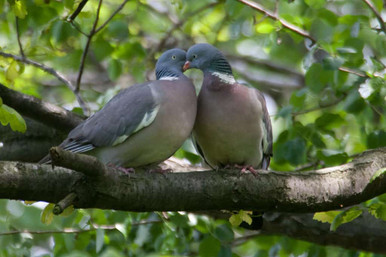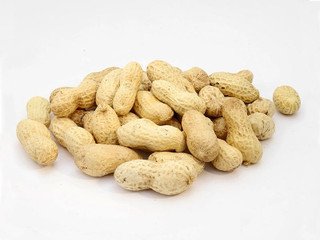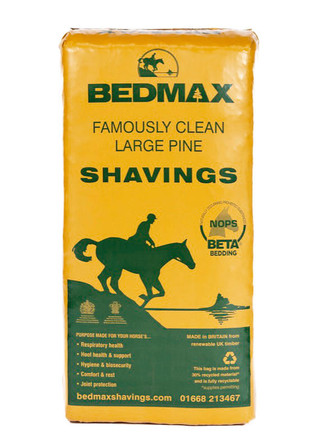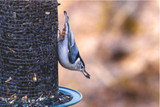5 Ways To Minimise The Spread Of Disease Among Garden Birds
Attracting garden birds to feed in your garden is great, but there are specific steps you need to take in order to protect them from disease. Many birds feeding from the same feeder can run the risk of spreading disease. This blog aims to explore 5 ways to minimise the spread of disease among garden birds.
Putting bird food out in your garden is really beneficial to helping wildlife, however, it does come with several risks.
Common Infections And Diseases Among Garden Birds
There are a number of diseases that we see often among garden birds. It is known that the spread of disease is increased when groups of birds gather together, which they often do in gardens. With the Covid-19 Pandemic highlighting the spread of a disease and virus, it's important to point out and focus on the most common infections and diseases among garden birds that we see are:
- Salmonellosis
- Avian Pox
- Trichomonosis
- Colibacillosis
Many diseases affect the birds’ mouths and throats and more often than not cause serious ill health for the birds.

Minimising The Spread Of Disease Among Garden Birds
It can be difficult to monitor and stop the spread of disease among birds, but there are some ways in which you can prevent the spread from occurring in your garden.
Keeping feeders clean is one of the first tips and essentially the most vital part of feeding birds. It is common for birds, when many are congregating on bird feeders, to contract a disease from one another.
It isn’t simple to spot the signs of disease affecting birds as many of the signs are different and, birds come and go! But there are changes you can make to your bird feeding process that can minimise the spread of disease and in turn, protect the wildlife visiting your garden.
Keeping Feeders Clean
Briefly mentioned already, consistently cleaning feeders is one of, if not the, most essential way of minimising the spread of disease among birds that visit your garden. Stagnant water, rotten food and mould are all results of not cleaning your bird feeder and all ways in which birds can contract disease!
Maintaining bird feeder hygiene is key to happy and healthy garden birds. Cleaning your feeders is simple. You can read more about it here.
Spread Out Your Feeders
The next tip to minimise the spread of disease is to spread out your feeders if you have more than one.
Diseases are often spread easier and quicker when large congregations of birds feed together, and some breeds of birds feed in flocks. The more you can avoid large groups of birds feeding from one feeder and transferring saliva, the better.
Feeders that are placed at different locations and heights often replicate how birds feed in the wild so are likely to make your garden a popular attraction!
Inspect Bird Food Supply
Constantly checking your supply of bird food is essential when it comes to minimising risks. This is incredibly important during the summer months when food is left in direct sunlight and more susceptible to going bad.
Replenishing food supply and removing old or mouldy food often removes the risk of contaminated food passing on diseases to other garden birds.
Clean Water Source
This also goes for water. Providing birds with a fresh clean source of water is essential for their hygiene and hydration. However, leaving water to go stagnant or dirty is therefore exposing birds to the risk of contamination.
Clean water is essential for both bathing and feeding so making sure birds have access to a clean water source is vital, but do be cautious that some birds may clean where others drink and so keeping the water clean is of the utmost importance for the birds.
Removal Of Dead Birds
Following guidelines from the RSPB, sick or dead birds should be appropriately removed from your gardens in order to stop the spread of potential infection or disease to other living birds and wildlife.
Disposing of a dead bird properly or contacting the correct authorities to report a sick or injured bird is another important way of minimising the spread of disease.
Get In Touch
Want to know more about ways in which you can minimise the spread of disease among garden birds? Get in touch!
Our team of experts take part in continuous research into the feeding of wildlife and are happy to answer any queries you may have on protecting both garden birds and wild birds whilst they visit your feeders.
Call us on 01778 342 665
Or email us at info@kennedywildbirdfood.co.uk
Explore Popular Articles
-
Top 11 Yellow Birds in Britain and the UK to Attract in Your Garden
15th Dec 2025Yellow birds bring a splash of colour and cheer to any garden. Observing these birds can be both rel
-
Should You Feed Birds Every Day? A Complete Guide on Feeding Birds
15th Dec 2025At Kennedy Wild Bird Food, we believe that understanding how to care for garden birds is as importan
-
How Sunflower Seeds Can Improve Your Bird's Health
14th Jun 2024Birds are quite attracted towards sunflower seeds, but have you ever wondered about sunflower seeds'














